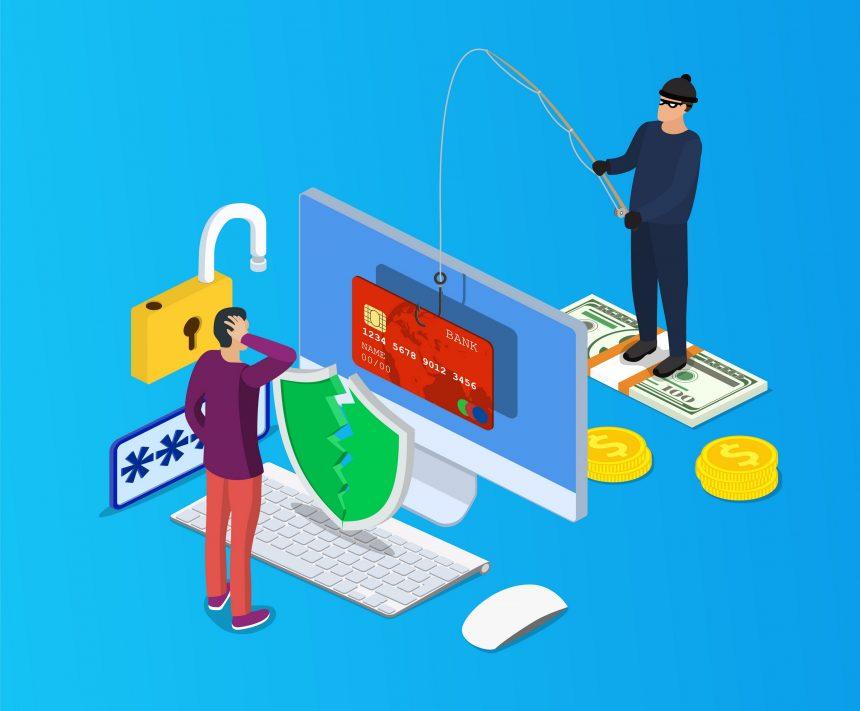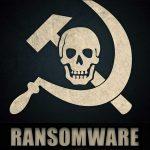In the realm of cybersecurity threats, phishing scams continue to evolve, exploiting real-world events and sentiments for malicious purposes. The “Donations For Gaza Strip” email represents a nefarious attempt to take advantage of the ongoing Israel–Hamas conflict, preying on individuals’ goodwill and empathy. This phishing scam masquerades as a plea for humanitarian aid from the Islamic Relief Worldwide agency, but in reality, it is a cleverly crafted fraud aimed at diverting funds to cybercriminals rather than contributing to any legitimate relief efforts in Palestine. This article delves into the intricacies of this threat, examining its characteristics, actions, symptoms, and provides a step-by-step guide to removal, concluding with crucial advice on preventing similar infections in the future.
Unpacking the Threat
The “Donations For Gaza Strip” email operates as a phishing scam, falling under the broader categories of social engineering and fraud. The perpetrators disguise themselves as representatives of the Islamic Relief Worldwide agency, leveraging the ongoing conflict to create a sense of urgency and solidarity. The scam involves a deceptive plea for donations in Bitcoin cryptocurrency, purportedly to support essential services such as medical aid, shelter, and transportation for those affected in the Gaza Strip. The key deception lies in the fact that the provided cryptocurrency wallet is controlled by cybercriminals, ensuring that any funds transferred end up in their hands rather than contributing to genuine relief efforts.
Spam Campaigns in General
Spam campaigns continue to be a prevalent cybersecurity threat, with scammers employing various tactics to deceive individuals. Among the recent examples are the “PCRF email scam,” exploiting the Israel–Hamas conflict for fake donations to aid Palestine. Additionally, deceptive emails such as “Truist Online Banking Profile,” “Increase Your Mailbox Storage Capacity,” “INTERNATIONALE SPANISCHE ONLINE-LOTTERIE,” “IMAP Termination Process,” “Hope And Care,” “Funds For Transfer,” and “American Express Account Confirmation” showcase the diversity of spam mail schemes.
Scammers frequently leverage real-world events like wars, armed conflicts, natural disasters, and epidemics as a backdrop for their schemes. Beyond donation-pleading scams, common types of spam include philanthropic efforts, inheritances, lotteries, refunds, service cancellations/renewals, computer/security threat alerts, online account issues, and bogus blackmail attempts. These deceptive emails aim to exploit recipients’ trust or create a sense of urgency to elicit sensitive information or financial transactions. Furthermore, some spam campaigns use deceptive emails as a vector for proliferating malware, posing an additional threat to users’ cybersecurity.
As users navigate their emails, it’s essential to exercise caution and skepticism, especially when encountering unsolicited messages or those that play on current events. Awareness of the common tactics employed by scammers, combined with proactive cybersecurity measures, can help individuals avoid falling victim to spam campaigns and protect their personal information from exploitation. Regularly updating security software and staying informed about emerging threats contribute to a safer online experience.
Symptoms and Risks
Recognizing the threat involves understanding the symptoms and risks associated with such phishing scams. Unauthorized online purchases, changed account passwords, identity theft, and potential illegal access to the victim’s computer are among the potential consequences. The virtually untraceable nature of cryptocurrencies adds an extra layer of risk, as victims are unlikely to recover funds once transferred to the scammer’s wallet. Users must be vigilant and cautious when receiving unsolicited emails, especially those requesting financial contributions or personal information.
The Text of the Email
Subject: Re: Palestine (Gaza) Emergency Appeal: Read Please
Dear Friends,
As-salamu alaykum [وَعَلَيْكُمْ السَّلَام]
In these challenging times, our faith stands together as a beacon of hope and support for our brethren in the war-torn Gaza Strip (Palestine). As we pray for their safety and well-being, we extend our hands in solidarity and compassion.
The Islamic Relief Worldwide is calling you, friends, well-wishers, brothers and sisters all over the World to assist in the evacuation and relief efforts for families facing dire circumstances. We kindly seek your generous contributions, support and prayer. Please do not ignore, your support in this trying time will be rewarded, so that we can assist the people of Gaza Strip whose children and women are killed every minute.
Your donations will help provide essential aid, shelter, transportation, basic needs to those in dire need, allowing them to find safety and solace in these troubling and terrible times they are facing in Gaza. The situation in Gaza Strip could be anybody. Every contribution, no matter the size, makes a difference. Together, we can make a positive impact and offer a lifeline to those suffering. In the sight of Allah, all men are equal regardless of race, status or wealth. He judges them only on their good deeds. Do not turn back on those in need.
Please donate what you can, and may your generosity be rewarded. Your support is a testament to our unity and the strength of our faith community.
Donation: You can Donate through the following means: 1:
BTC (Bitcoin).
You can donate to BTC Wallet /Account: bc1qp5wuc2sku30crrprk9qn7zeackdkr7sfr6uxwy
Note:
If you do not know how to use this process (BTC), you can sign-up here hxxps://www.blockchain.com/. You can fund your account through your Bank.
JazakAllah Khair (May Allah reward you abundantly) for your kindness and compassion.
With prayers and gratitude,
Sheikh Muhammad Ibn Elahi Othman
Ibn Marwan Mosque Tuffah Gaza [جامع ابن مروان]
Sponsored: Islamic Relief Worldwide
Please send us a message to rmt@rtpst.com once you donate so that we will always pray for you.
The text of the “Donations For Gaza Strip” email scam
How to Navigate the “Donations For Gaza Strip” Email Scam
We have provided some best practices for dealing with the “Donations For Gaza Strip” email scam and similar phishing attempts:
- Be Skeptical of Unsolicited Emails
- Exercise caution when receiving unsolicited emails, especially those requesting financial contributions or personal information. Scammers often use emotional appeals and urgent language to manipulate recipients.
- Verify the Sender’s Identity
- Check the sender’s email address for legitimacy. In this case, the email claims to be from the Islamic Relief Worldwide agency; however, scammers often use email addresses that mimic legitimate organizations but have subtle differences.
- Do Not Click on Suspicious Links
- Avoid clicking on any links or downloading attachments from emails that seem suspicious. These could lead to phishing websites or malware downloads.
- Verify Donation Requests Directly
- If you receive an email requesting donations, verify the legitimacy of the request by contacting the organization directly through official channels. Use contact information obtained from the organization’s official website rather than relying on information provided in the email.
- Check for Red Flags
- Look for signs of phishing, such as generic greetings, spelling errors, or unusual language. Legitimate organizations usually communicate in a professional manner.
- Use Two-Factor Authentication (2FA)
- Enable 2FA on your email and other accounts to add an extra layer of security. This helps protect your accounts even if your login credentials are compromised.
- Report and Block
- Report phishing emails to your email provider and mark them as spam. Additionally, block the sender to prevent further communications from the same source.
- Educate Yourself and Others
- Stay informed about common phishing tactics and educate friends, family, and colleagues about the risks associated with such scams. Awareness is a powerful defense against cyber threats.
- Keep Software Updated
- Ensure that your operating system, antivirus software, and other applications are up-to-date with the latest security patches. Regular updates help protect against known vulnerabilities.
- Use Reputable Security Software
- Install and regularly update reputable antivirus and anti-malware software. While we’re not endorsing specific products, having robust security software adds an extra layer of protection against various threats.
By following these best practices, individuals can enhance their defenses against phishing scams like the “Donations For Gaza Strip” email and contribute to a safer online environment. Vigilance and informed decision-making play pivotal roles in thwarting cybercriminals and protecting personal information.
Conclusion
In conclusion, the ever-evolving landscape of spam campaigns underscores the adaptability and persistence of cybercriminals in exploiting human vulnerabilities for malicious gain. The examples provided, from the “PCRF email scam” to deceptive emails like “Hope And Care” and “Funds For Transfer,” showcase the diverse tactics employed to manipulate individuals emotionally or financially. As scammers incorporate real-world events, such as the Israel–Hamas war, into their schemes, it becomes crucial for users to remain vigilant, critically evaluate incoming emails, and be cautious about sharing personal information.
The prevalence of spam extends beyond mere nuisances; it poses tangible risks, ranging from financial fraud to malware infections and identity theft. As seen in the varied themes of these spam campaigns, attackers exploit a spectrum of human emotions and concerns, emphasizing the importance of fostering a cybersecurity-aware culture. Regular education and awareness initiatives can empower individuals to recognize the telltale signs of spam, enabling them to avoid falling victim to these fraudulent schemes.
To fortify against the persistent threat of spam, users should implement proactive measures, including keeping software up-to-date, using reputable antivirus software, and adopting a skeptical mindset when engaging with unexpected or suspicious emails. By staying informed about emerging threats, users can contribute to the collective effort to mitigate the impact of spam campaigns, thereby creating a safer online environment for themselves and the broader digital community. As technology continues to advance, so must our defenses and awareness to navigate the ever-evolving landscape of cyber threats.





